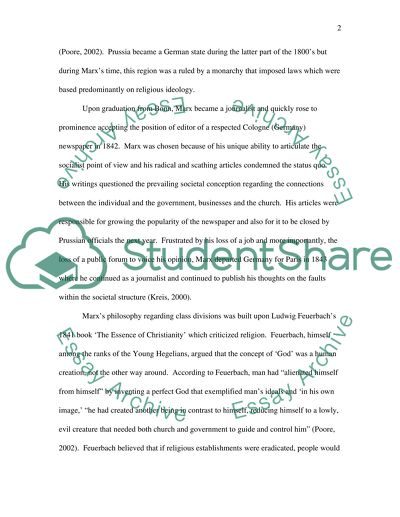Cite this document
(“Karl Marx's Ideas About Religion Essay Example | Topics and Well Written Essays - 1500 words”, n.d.)
Retrieved from https://studentshare.org/miscellaneous/1539874-karl-marxs-ideas-about-religion
Retrieved from https://studentshare.org/miscellaneous/1539874-karl-marxs-ideas-about-religion
(Karl Marx'S Ideas About Religion Essay Example | Topics and Well Written Essays - 1500 Words)
https://studentshare.org/miscellaneous/1539874-karl-marxs-ideas-about-religion.
https://studentshare.org/miscellaneous/1539874-karl-marxs-ideas-about-religion.
“Karl Marx'S Ideas About Religion Essay Example | Topics and Well Written Essays - 1500 Words”, n.d. https://studentshare.org/miscellaneous/1539874-karl-marxs-ideas-about-religion.


